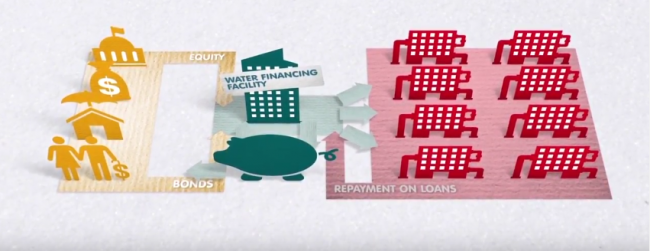Ministers need to step up efforts to bridge the financing gap.
Published on: 20/04/2017

A group of organisations are calling on Finance Ministers to focus on neglected funding issues in the water and sanitation sector. IRC, water.org, the Ministry of Foreign Affairs of The Netherlands, and Simavi are presenting their recommendations at the Sanitation and Water for All Finance Ministers meeting, which takes place in Washington, DC on April 20, 2017.
In order to attract private finance necessary to achieve the WASH SDGs, Government leadership and public finance need to create an attractive investment environment, Patrick Moriarty
So what should Ministers of Finance do together with other ministries to meet the ambitious target of universal access to water and sanitation set forth in Sustainable Development Goal 6?
First of all, countries are not spending enough on the policies, laws, regulations and institutions needed to convince investors their investments in water and sanitation services are safe. That means that budgets should include adequate provisions for the recurring costs of maintaining existing services.
Secondly, there are untapped sources of finance such as microloans for low-income populations. There can be combinations of grant and non-grant financing from private and/or public sources as well investments from private users themselves. This so-called blended funding can help get people hooked up to good services more quickly.
Finally, public finance is neither being used enough nor tracked properly to ensure it reaches the poor with water and services.
In their recommendations to Finance Ministers, the four organisations present examples of good practices that tackle the above mentioned neglected funding issues. In Kenya, the Netherlands Embassy supports a pooled fund for water utilities, which can prove that they can service their loans. Water.org helps community-based organisations (CBOs) in Indonesia get access to microloans so that they can provide water services in rural areas. In 2015, the government of India introduced a national tax for sanitation. The world largest NGO, BRAC in Bangladesh has provided over 1700,000 loans to poor households for hygienic latrines.
The full position paper “Financing WASH: how to increase funds for the sector while reducing inequalities” is available below under Resources.